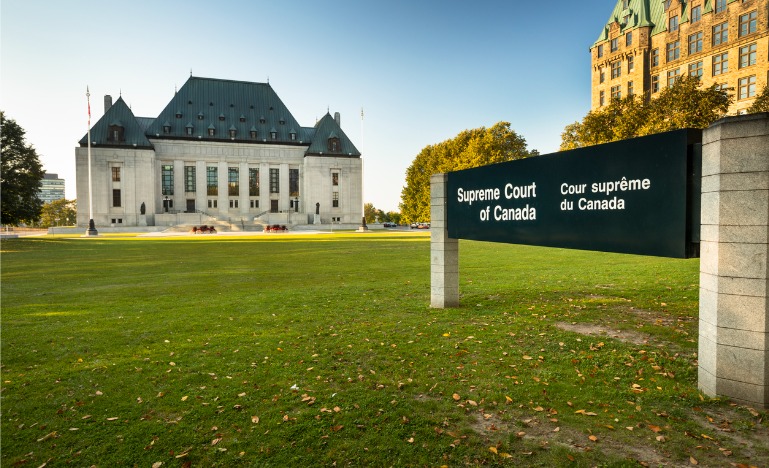No conflict between open court principle and trial fairness
Supreme Court of Canada upholds pre-trial automatic publication bans, but questions remain.

In a unanimous decision, the Supreme Court of Canada has ruled that automatic publication bans for pre-trial hearings before a jury is empanelled are a valid exception to the open court principle. This resolves an ongoing decades-long debate across the country over inconsistent case law.
"There is no irreconcilable conflict between the open court principle and trial fairness," Chief Justice Richard Wagner wrote in his reasons. "They both serve to instill public confidence in the justice system. The public can understand the work of the courts, and thus come to trust the judicial process and its outcomes, only if informed of 'what a judge decides' and 'why the particular decision is made.' Needless to say, the media play a crucial role in making this possible. The protection of fair trial interests, such as the right to an independent, impartial, and representative jury, is also essential to public confidence in the administration of justice."
Regarding Section 648(1) of the Criminal Code, Wagner added that Parliament had imposed an automatic, albeit temporary, publication ban to shield juries from information they have not been permitted to consider and promote efficient trials.
Lawyers who represented the major media outlets across the country, who brought the challenges, were dismayed by the result.
"Although we are disappointed as we feel that the modern approach to statutory interpretation combined with Hansard should have led the Court to conclude that section 648 (1) only applies after jury empanelment, La Presse accepts and respects the Court's ruling and reasons," says Marc-André Nadon, a partner with Prévost Fortin D'Aoust in Boisbriand, who represented Montreal daily La Presse in the Silva case.
"At least from now on, the controversy surrounding the interpretation of this section is permanently resolved for the benefit of all Canadians and professionals involved in the judicial system," Nadon says. "La Presse will continue to defend freedom of expression and of opinion, freedom of the press as well as the public's right to information and the open court principle."
Daniel Burnett of Owen Bird Law Corporation in Vancouver, who represented all the major media outlets in the Coban case, acknowledges that there is a welcome resolution to the uncertainty around the case law. But it means automatic publication bans on a many pre-jury selection hearings in many criminal cases, some of which can take months or even a year.
"It's a bit of an unfortunate blow to openness," Burnett says. "I will be very interested to see what the statutory interpretation scholars say about the Court's reasoning for overriding the opening words of the section."
Burnett says that in his submissions to the court, he stressed that you can't effectively delete words of Parliament, which he says the court did in their reasons.
Vibert Jack, litigation director of the BC Civil Liberties Association, is pleased with the decision because it struck the right balance between the freedom of the press and the need for an impartial jury.
"Our main interest in the case was ensuring that the open court principle was respected and not seen as being in conflict with the right to a fair trial, and the court went out of its way to make those points, and we feel the decision did recognize that those values are not in conflict, but rather work together," Jack says.
Jack says that a plain reading of the section would make it difficult to get to the court's decision and that the wording seems to suggest that the publication ban would only apply once a jury is selected.
"The court took a deeper look and really emphasized the purposes of the provision," Jack says. "They also put a strong emphasis on the practical realities and implications of their decision. The result is reasonable, even if I understand why some people would be critical of the interpretive methods."
Jack found it surprising that there wasn't any dissent in the case regarding the interpretation. However, he says, the unanimity of the decision highlights its reasonableness.
Burnett highlights a disagreement with the BC courts in treating all pre-trial hearings heard by the appointed trial judge as covered by the ban.
He says there are scenarios involving pre-jury hearings unrelated to the charge or evidence—such as constitutional challenges, public funding applications, or logistical case management conferences. In these instances, judges must make individual determinations, as the court suggests they must declare if these are the types of hearings triggering the publication ban.
"We're entering into an era of trying to sort that out, and when there's an important public interest in those hearings that is not about guilt or innocence or the evidence, I would hope that we'll be seeing judges saying that this is not one of those [hearings] that are covered," Burnett says. "But I suspect there will be hearings where parties take opposing views and judges will have to decide if they're in or out."


